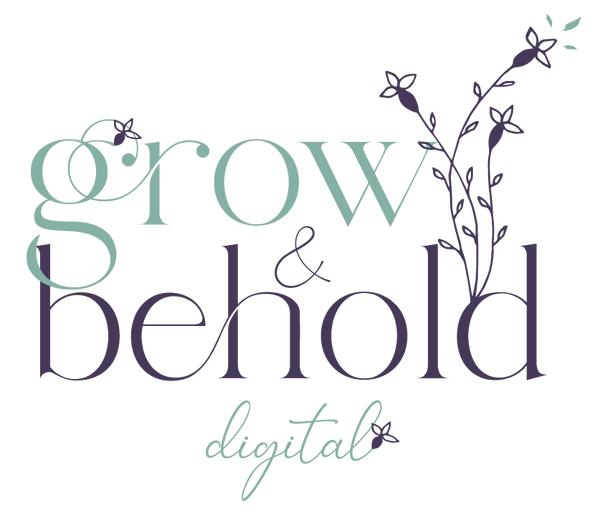
SEO Guide for Beginners: part 1
Welcome to SEO Guide for Beginners, designed to help you optimize your small business website
This SEO Guide for Beginners is for small business owners that wants to achieve a better understanding of SEO so that they can utilize these strategies to optimize their websites for better ranking on the search engine results pages.
Optimizing your website is a balance of creating a website that is an enjoyable and positive experience for your customer, but also set up in a way that search engines 'have a good time' too. Search engines, such as Google, Bing, or Yahoo, take a look at your site when someone makes a search, and if your website content doesn't reflects what your audience is searching you will not be suggested at the top of the search pages.
Options for how to use the SEO Guide for Beginners:
1. Book mark this page and come back to it as your SEO guide
2. Download the free PDF version for easier access offline or anytime
PS - there is a glossary of SEO terms avaialble if you need to reference, I recommend that you browse through them to familiarize yourself with the world of SEO.
Keyword Research not part of the SEO Guide
It's important to know not only how to optimize your website, but what words to optimize it for. It won't do you any good to optimize you website for a phrase that no one is searching for! Before your start taking action to optimize your website, make sure that you have taken the time to properly research your keywords.
Types of SEO in the SEO Guide for Beginners
There are four main types of SEO that you can apply to your website so that your site is optimized for search engines to direct more traffic to your website.
- On page SEO
- Off page SEO
- Technical Optimization
- Local SEO
Technical & Local SEO information can be found on part two of this article.
On Page SEO Guide
Just like the name says, On Page a type of SEO that is all about optimizing the elements that are on your web pages. These elements are both customer-facing elements such as headers, titles, and quality content, but it also includes factors that are important to search engines ranking systems such as alt text or meta titles and descriptions. These elements aren't always visible to the public but are important steps to take when optimizing your website for search engine.
Metadata
Meta Titles and Meta Descriptions are an important part of optimizing your pages and products. The Meta Title and Description are what shows up on search results and the title and sort description of each page and website. The Meta Title/description can be different than the actual title and first paragraph, but by default if you don't set them intentionally they will reflect the title and first paragraph.

Make sure to include your keywords and keyword phrases in your Meta Title and Descriptions but don't make them a jumble of keywords because your human audience will also be selecting your page based on these descriptions. It should reflect what the page is about while also incorporating the keywords.
Graphics & Images
Improve User Experience
Adding images to your products, pages and articles is great for the readers experience. It breaks up the text and provides information in a quick visual way.
It's also an opportunity to optimize those images for search engines using
Alt Text and intentional file names.
Add Alt Text to Images
Alternative Text is a built-in accessibility tool for images online. The Alt Text is a description of what the image is about so that people who use screen readers can get can information from the images without seeing it.
Just like Meta Titles/Descriptions you want to consider both customer and search engines when deciding what to put for your Alt Text. It should describe the image while keeping your keywords in mind.
Tips: Be concise in your descriptions and never start Alt Text with "This is a picture of..." You don't need to add alt text to decorative images or images that don't convey information that's useful to the user.
Rename Images
By default many photos will have names like "DCS1390" or "Screenshot-20-12-2021" depending on where they were populated from. Update your file names to include descriptions and keywords, but don't flood your website with the exact same keyword on all your images.
Internal Linking
Internal linking is when you link from one page of your website to another page of your website, such as linking a blog to another blog that expands on the subject, or linking a product in a blog.
This is beneficial because it increases the amount of time that somebody is spending on your site. Search engines take this into consideration when ranking for search engine result pages.
URL Structure
Changing your URL address from candlebusiness.ca/page1 to candlebusiness.ca/candles-for-sale will help search engines to understand what the page is all about.
It's also a great way to share pages and products online or through your social media, you can share addresses that are easy to remember and look good on a promotion.
Note: be aware when changing URL addresses that you don't create
a broken link. Ensure your old link redirects to your new link before changing the address.
Quality Content & User Experience
The overall experience on your website is important for SEO because it effects how long your users stay on the website. The better the content, the more time people are spending on your page, and that information tells search engines that your site is worth suggesting. 
Your website Speed is another aspect that effects both the users experience and the ranking of your website in search pages. If your website is full of huge images that are taking forever to load, then both search engines and people will not even bother to wait.
Off Page SEO Guide
Off Page SEO helps to build your website's authority and trustworthiness. Websites with higher authority tend to rank higher because they are deemed more credible or relevant.
• backlinks
• guest blogging
• advertising
• other media
Backlinks
Backlinks are links from other websites to your website and they act like a vote of trust going back and forth. Focus on quality over quantity and aim for links that have relevant topics, good authority and are coming from a variety of (relevant) domains.
One way to get some ideas for backlinks is to research your competitors backlinks. Use a free Backlink Checker to get some ideas on where and how to start building up backlinks for your business and industry.
Advertising
Advertising is a tricky way to get eyes on your site and it can be a costly way to get on Google's first page. Ads through Google, Facebook and Instagram can be effective at getting eyes on your website but the learning curve involved in platforms like Google Ads or Facebook Ads Manager can be overwhelming and frustrating. Take the time to learn a platform before you start paying so that you don't waste your money.

Guest Blogging
Creating content for other websites is a great way to share an audience with a similar brand. You can offer to exchange articles, each linking back to the other site for more information on the topic.
It doesn't have to be long essays, you can provide lists, tips, interviews or Q&As that benefits both of your audiences.
Podcast Guest and Other Media
Any other form of media in which you are highlighting your business or service is a great way to extend your awareness and reach new audiences.
Find local newspapers, podcasts, blogs, videos and other media that share a similar audience with your business and get creative with how you can collaborate.
The more your business and website is associated with trusted brands, the more authority you build with Google and other search engines. When your sites are linked with other trustworthy businesses it helps your reputation and chances of getting to the top of the results page.
SEO for Beginners PART TWO: Technical & Local SEO information can be found on part two of this article.



